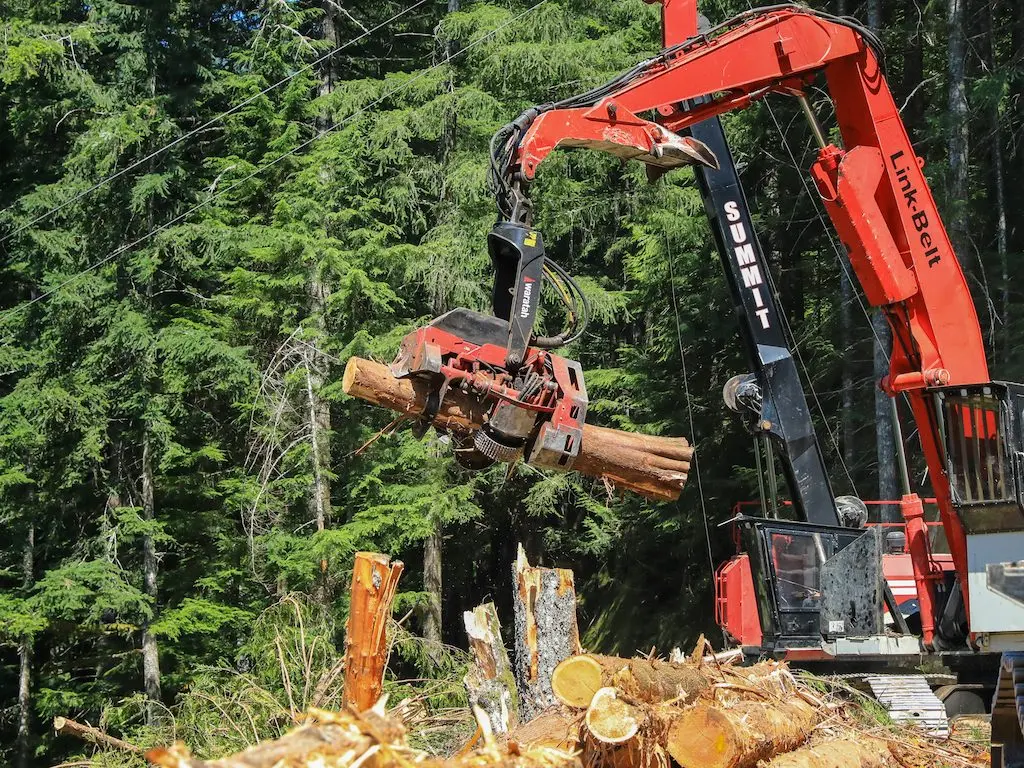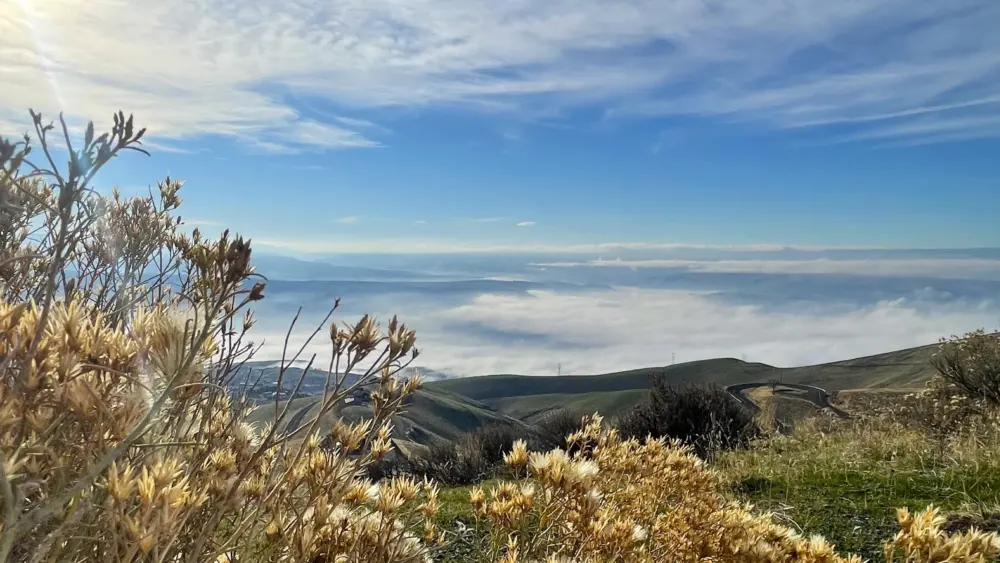OLYMPIA, WA – Washington’s governor and attorney general are both criticizing a federal proposal to lift restrictions on construction, logging, and mining on millions of acres of federal forestland.
Gov. Bob Ferguson and Attorney General Nick Brown separately submitted formal comments this month opposing the rollback of the so-called Roadless Rule.
The federal regulation, established in 2001, prohibits industrial activity on about 2 million acres of the national forest in Washington.
“The Roadless Rule has become one of our country’s most consequential conservation policies ever,” Brown and seven other attorneys general wrote in joint comments.
On the other side of the debate, logging interests have weighed in, urging the federal government to move ahead.
The U.S. Department of Agriculture, which houses the U.S. Forest Service, is aiming to finalize its rewrite of the rule before the end of next year.
The Trump administration’s proposed overhaul of the rule would end protections for about 45 million acres nationwide.
“In Washington state, these protections sustain clean water, fish and wildlife habitat, tribal treaty and cultural resources, and an outdoor recreation economy vital to our state’s identity,” Ferguson said in a letter submitted to Secretary of Agriculture Brooke Rollins on Sept. 18.
Public comment on the federal proposal closed Sept. 19. The Department of Agriculture indicated there will be another opportunity for public comment when a draft environmental impact statement is released in March 2026.
Washington has a total of 9.2 million acres of national forest land, of which 2 million are protected by the Roadless Rule.
Roadless areas within the state include parts of the Olympic, Mount Baker Snoqualmie, Gifford Pinchot, Wenatchee, Okanogan, Colville, and Umatilla National Forests. Roadless areas also connect wildlife habitats in Olympic National Park, North Cascades National Park and Mount Rainier National Park, and border waterways such as the Snake and Columbia rivers.
The 49-page document Brown signed onto was submitted by the attorneys general of Washington, Oregon, California, Arizona, Massachusetts, Minnesota, New Mexico and Vermont.
Brown noted that recreational areas protected by the Roadless Rule in Washington contribute to an estimated $400 million in economic activity tied directly to U.S. Forest Service lands.
The rule also protects critical habitat for roughly a dozen threatened and endangered species, including Chinook salmon, gray wolves and the northern spotted owl, Brown said.
Rescinding the rule, he said, would harm Washington’s economy and jeopardize the work the state has put into supporting the recovery of threatened and endangered species.
Opening new areas up for road construction would also be unwise, Brown said, due to a backlog of national forest road maintenance in Washington. His comments cite estimates of over $236 million in maintenance already needed across 8,500 miles of forest service roads. As the roads erode, they deposit sediment into water systems and harm water quality.
Rescinding the rule is in line with the Trump administration’s commitment to remove “burdensome, outdated, one-size-fits-all regulations that not only put people and livelihoods at risk, but also stifle economic growth in rural America,” Rollins said in a statement last month.
As opposition boils up, industry groups, like the American Forest Resource Council, are backing the administration, saying that leaving the forests off limits has allowed them to grow too dense, raising the risks of wildfires and tree disease.
“The Roadless Rule is based on the false notion that doing nothing is the best way to protect our forests,” American Forest Resource Council President Travis Joseph said in a statement this month. The council advocates for the timber industry in the Northwest. It submitted public comments in support of the proposed rule change with the California Forestry Association.
In their joint comments, the American Forest Resource Council and the California Forestry Association said the Roadless Rule “unnecessarily prohibits, restricts, or reduces responsible access and active forest management.” They argue that active forest management, which includes logging, is “the most effective way to mitigate fire risk.”
Opponents, including Brown and his fellow attorneys general, counter that the Roadless Rule allows for wildfire mitigation in the protected areas and argue that more human activity in the forests will increase fire risks.
The comments from the attorneys general detail a range of procedures the U.S. Department of Agriculture has to follow before it can rescind the rule, including considering a reasonable range of alternatives and ensuring adequate public comment.
If the department does move forward with rescinding the rule, it is also required to work with the affected states and tribes to ensure compliance with other laws, including the Endangered Species Act and the National Historic Preservation Act.
The American Forest Resource Council maintains that rescinding the rule will not undermine these other environmental safeguards.
“It simply restores flexibility for local forest professionals to consider limited road access where necessary for science-based restoration or emergency response,” Joseph said.
Ferguson called for the U.S. Forest Service and the U.S. Department of Agriculture to provide a clear framework on how environmental protections will be maintained if the Roadless Rule is axed.
“Absent such assurances, rescission risks undermining stability, predictability, and trust that communities, tribes, and states rely on,” Ferguson said.
The lack of that framework, combined with the “abbreviated comment period and lack of tribal consultation” on the proposal, Ferguson said, has caused “significant uncertainty and concern.”
The statements from Ferguson and Brown come after tribal leaders and environmental advocates held a rally at the state Capitol earlier this month opposing the rule’s repeal.
Washington State Standard is part of States Newsroom, a nonprofit news network supported by grants and a coalition of donors as a 501c(3) public charity. Washington State Standard maintains editorial independence. Contact Editor Bill Lucia for questions: info@washingtonstatestandard.com.





